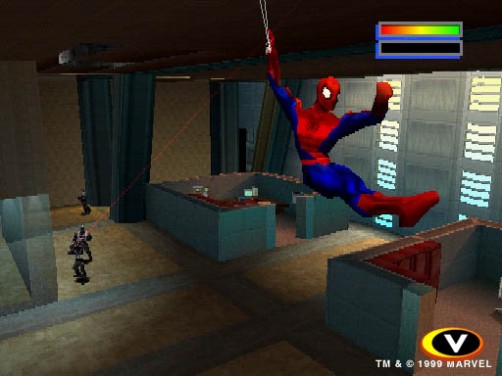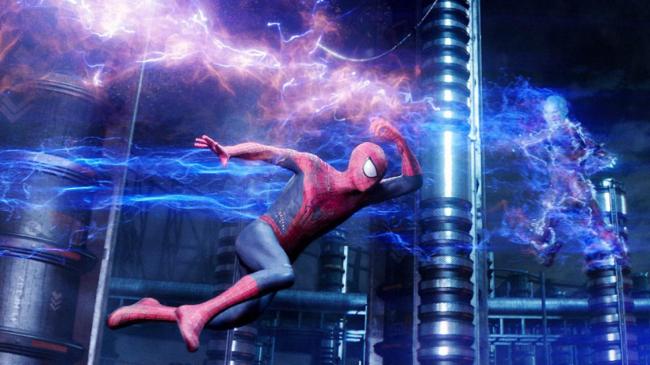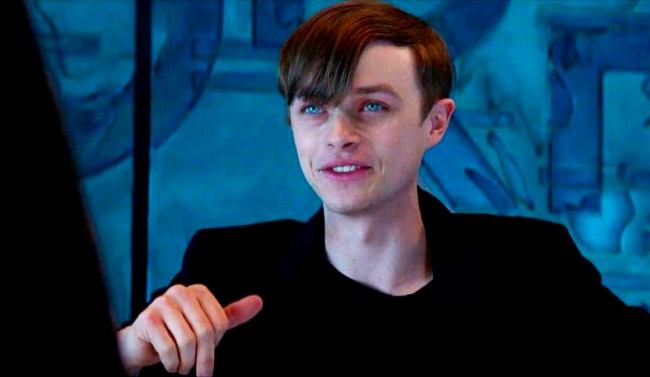HAPPY 2015 TO YOU ALL, RECKONEES! Lovely to see you again. Did you have a nice new year’s? I like your hair, have you done anything new with it? It suits you, whatever it is.
Anywho, enough of this silly ego-rubbing. We’ve got films to be reviewing. First off, Birdman – or, if you want to be specific, Birdman or (The Unexpected Virtue of Ignorance).

I won’t be specific though, just before it’s longer to type, even as an acronym.
Anyway, Birdman is a motion picture following Riggan Thomson (played by Michael “Batman” Keaton, see what they did there?), an actor who had massive commercial success with the Birdman series of films in which he played the titular character. However, this was 20 years ago and now, as he bemoans, “[he’s] just an answer to a trivial pursuit question!” – he gets vaguely recognised but isn’t working too much. So he decides to direct, write and star in a stage adaptation of Raymond Carver’s play What We Talk About When We Talk About Love. The film follows him and the people around him (including his daughter, played by Emma Stone, and his cast members including Edward Norton and Naomi Watts) for the few days leading up to the grand opening of the play, focussing on Riggan’s cracked psyche and how Birdman haunts him every single day of his life…

Birdman is not a straight forward movie to talk about (which, I know, sounds like a rubbish way to start off a review). In fact, it’s a movie that in some ways is an anti-movie, if you like; rather than constant cutting away during conversation or setpieces, as is movie law, the film is presented for the most part as if it is one long shot; never cutting away, like one fluid motion through a story. In that regard, technically speaking, Birdman is an absolute revelation. There are a couple of occasions in which, if you were feeling particularly nitpicky that day, you could notice points where they could have cut away, but for the most part there is no sign of technical trickery or anything like that; and in that regard, it’s a masterpiece.

The writing is fascinating. It’s a story about so many things, including but not limited to fame, the high/low culture divide, the nature of superhero movies, philosophical and poetic musings on life itself and the state of the actor. Yet Birdman never comes across as pretentious for exploring these areas as it has a dark comedic strain running through it like the jam of a filmic trifle. It’s strangely touching and scathing simultaneously; an example of this being Sam’s (a pale yet amazing Emma Stone’s) soliloquy about human beings trying to convince themselves that they matter when, truly, they don’t. In this same movie, Riggan also gets trapped in Times Square in just his unders. To say that it is a mixed bag would be an understatement, and it does feel as bizarre as it is dynamic, but it also gels together so well in this jazz drumming-scored exploration of Riggan’s broken mind. Michael Keaton is the best he has ever been in this role that is so parallel to his own life, and he uses it to great effect; both Riggan and his Birdman alter-ego could be his echo, and it’s played wonderfully well as he embraces the bizarreness of it all.

Birdman is a film that will rub a lot of people up the wrong way due to how weird and off key it is – indeed, when I saw it, a lot of people came out asking just what the F it was they had just seen. But that is, ultimately, what makes it glorious. The serious themes and reflection on our own culture and the condition of the entertainer, as well as the dark comedy light that it’s shown in (can you have dark light?), are things that I could write on and on and on about, but I’ll spare you. Suffice to say, director Alejandro Gonzalez Innaritu will be heralded for a very long time and this film will be studied in the future, and for good reason too – it’s a modern masterpiece. A demented one, but one nonetheless.
Right then, now onto The Theory of Everything (the film, not my theory on everything – that’s something reserved for psychoanalysts).

The Theory of Everything is the expanded story of Simpsons character Stephen Hawking (HAHAHA, come on that’s a joke, I respect the guy enormously). It of course tells the story of the wonderful Stephen Hawking (Eddie Redmayne in a transformational performance), the world famous scientist who studied at Cambridge in the 60’s, where he met the first love of his life in the form of Jane (Felicity Jones). The film follows their relationship as Stephen’s motor neurone disease causes his body to deteriorate, but also follows him as he defies all expectations and becomes one of the greatest scientists the world has ever known.

A spellbinding central performance by Eddie Redmayne is what causes this to transcend the boundaries of the usual biopic. His cheeky and near constantly optimistic characterisation of Hawking is the star at the centre of this movie, making you care about him pretty much one frame into the movie; this of course makes all the funny bits funnier, the inspiring bits more inspirational and the moving bits more, er, movinger. His portrayal of Stephen as a character as well as the intricacies of his examination of his illness is amazing and a true sign of the ascent of a future star.

Felicity Jones, too, is brilliant; making Jane not only a believable presence but also somebody we constantly root for and empathise with. The affect that Stephen’s illness has on her is also what this film is about, and we feel the tug on her heartstrings too as her life pretty much gets consumed by her brilliant husband. The script too is fantastic in going through Stephen’s life at a faster-than-expected rate, but not feeling rushed or like we are missing anything. Much like The Imitation Game, if you are looking for a science lesson from this then you will be disappointed as it does not really go into Stephen’s science too much; just the gravitas that it has and the reaction it causes in people.

It’s a wonderfully sweet and memorable film that caused me to get a lump in my throat (it wasn’t my adam’s apple, I checked) on quite a few occasions. The cinematography here too is wonderful, with beautiful Cambridgeshire shots illuminated by fireworks and lanterns, and the final shots of the film (as well as the heartbreaking final line) sticking with you for a long time afterwards. The Stephen Hawking biopic is just like the man himself; brilliant, moving and a surprising amount of fun.
Finally, it’s Taken 3 time.

Yes, we get to spend yet more quality time with Bryan Mills (Liam Neeson) – the most mundanely named action hero in history. In this instalment of the franchise, ol’ Bry is back living in LA, with his daughter Kim (Maggie Grace) and his ex-wife Lenore (not to be confused with the detergent of the same name. Oh and played by Famke Jassen) living close by. Everything seems happy for a bit. But, all of a sudden, Bryan is framed for Lenore’s murder and is on the run from the police and, once again, is after (for some reason) some anonymous Russian people. So, er, obviously things aren’t so happy anymore…

In Taken, it was the daughter that was being taken.
In Taken 2, it was the ex-wife that was being taken.
In Taken 3, however, it’s the piss that is being taken…
Even by Taken standards, this film doesn’t make any sense whatsoever. People’s motivations, the “twists” that happen along the way, who random people are in the background who just come in to help from out of nowhere… it’s pretty much completely nonsensical. To make matters worse, it seems to be filmed by a person who has just consumed a barrel of red bull and is riding a skateboard while trying to film what is going on – a lot of it is incoherent, with the camera on numerous occasions actually just completely missing the action altogether. It’s edited by that same person too, who doesn’t seem to want to let more than two frames pass by that are the same – even the forced, “funny” conversational bits at the beginning are shot in this way, which makes them even more annoying than usual. Honestly, those bits are cringe mode activators – Liam Neeson straining a smile through the “what the bloody hell am I doing here?” look.

I’m fine with action films being fun and defying the laws of logic and physics by quite some margin, but the fact is that Taken 3 often commits the worst crime in action blockbuster – being boring. Bryan turns up somewhere, leaving it up to our imagination how he snuck in and out, does something relatively innocuous and then leaves. There are some beat em ups and driving and shooting but that is mainly it. Taken 3, even if you are a Taken fan, is really really quite rubbish.
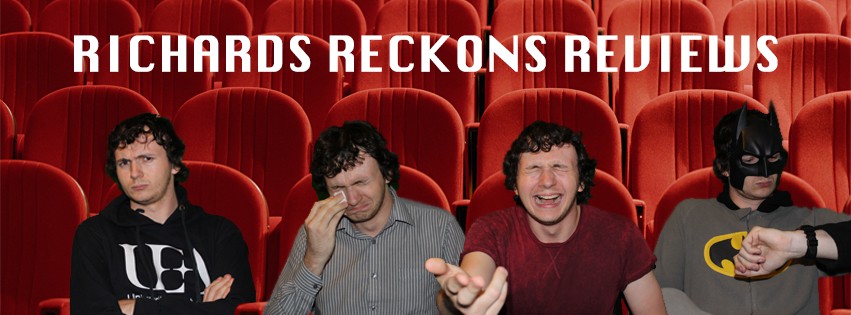
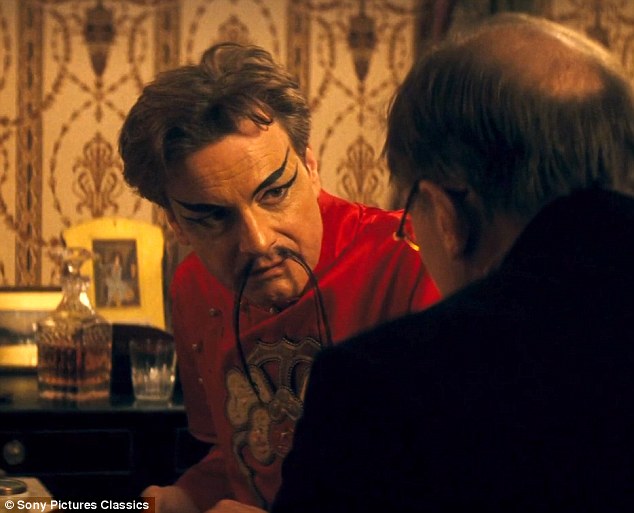 ANYWAY, Magic in the Moonlight not only has magic in the moonlight but it also has a PLOT in the moonlight, and that plot is this; set in the 1920s, Stanley (Colin Firth) is a successful magician who performs under the moniker Wei Ling Soo around the world. In Berlin, he’s approached by an old friend of his called Howard (Simon McBurney), who asks him to join him on a trip to the French Riviera to meet a rich family who have been charmed by the mystical Sophie (Emma Stone), who he thinks may truly possess the ability to talk to the dead and clairvoyance. Stanley being a famous skeptic, he agrees to go with him to meet her, and finds himself lost for words by her abilities.
ANYWAY, Magic in the Moonlight not only has magic in the moonlight but it also has a PLOT in the moonlight, and that plot is this; set in the 1920s, Stanley (Colin Firth) is a successful magician who performs under the moniker Wei Ling Soo around the world. In Berlin, he’s approached by an old friend of his called Howard (Simon McBurney), who asks him to join him on a trip to the French Riviera to meet a rich family who have been charmed by the mystical Sophie (Emma Stone), who he thinks may truly possess the ability to talk to the dead and clairvoyance. Stanley being a famous skeptic, he agrees to go with him to meet her, and finds himself lost for words by her abilities.



 There are also a couple more details that grated on me the whole way through; firstly, the soundtrack. The soundtrack starts off as fitting in with the old-timey aesthetic and feels very in place as a nice touch, but then it gets extremely repetitive and grates and grates and grates and grates; feeling especially jarring when quite a serious event occurs and an upbeat 1920s jazz band starts playing to accompany it. Secondly, Stanley himself. I’m a fan of Colin Firth as an actor and I think he’s great, and it’s no fault of his that Stanley is massively unlikeable. He’s arrogant, aloof and so up himself he could be using himself as his own puppet. The fact the character switches in his opinions so quickly as said above only makes it worse. He also doesn’t ever change his personality at all to get any sort of redemption or become a better person – he remains the same, bitter bastard until the end. The screen also has the annoying-in-a-wholly-different-way Brice (Hamish Linklater), a man who is utterly infatuated with Sophie and likes to show this by generally creeping around nearby, playing an incredibly irritating ukelele singing sycophantic songs at her.
There are also a couple more details that grated on me the whole way through; firstly, the soundtrack. The soundtrack starts off as fitting in with the old-timey aesthetic and feels very in place as a nice touch, but then it gets extremely repetitive and grates and grates and grates and grates; feeling especially jarring when quite a serious event occurs and an upbeat 1920s jazz band starts playing to accompany it. Secondly, Stanley himself. I’m a fan of Colin Firth as an actor and I think he’s great, and it’s no fault of his that Stanley is massively unlikeable. He’s arrogant, aloof and so up himself he could be using himself as his own puppet. The fact the character switches in his opinions so quickly as said above only makes it worse. He also doesn’t ever change his personality at all to get any sort of redemption or become a better person – he remains the same, bitter bastard until the end. The screen also has the annoying-in-a-wholly-different-way Brice (Hamish Linklater), a man who is utterly infatuated with Sophie and likes to show this by generally creeping around nearby, playing an incredibly irritating ukelele singing sycophantic songs at her.
